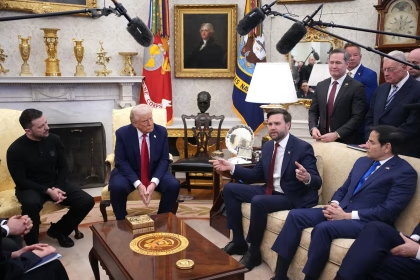The U.S. House of Representatives has passed a sweeping defense policy bill that includes a range of provisions governing military operations, funding, and oversight. What makes this particular version of the bill notable are the added “culture war” amendments—measures touching on social, educational, and ideological issues.
These amendments have sparked debate about the proper role of politics in defense legislation and raised concerns about their long-term effects on the military and broader U.S. society.
Overview of the Defense Policy Bill
The defense policy bill sets out the Pentagon’s budget and priorities for the coming years. It covers areas such as troop deployments, military procurement, personnel policies, and oversight mechanisms. Each Congress typically passes such a bill to guide and authorize defense spending and actions. This latest version, however, carries controversial clauses aimed at culture-related topics—clauses that go beyond traditional military matters.
What Are the ‘Culture War’ Amendments?
The “culture war” amendments refer to provisions added to the defense bill that focus on social or ideological issues. These may include rules about what can be taught in military training, restrictions on certain diversity or inclusion programs, or limitations on political expression by service members. The goal of these amendments is often to align military policy with particular cultural or political values, rather than focusing purely on defense effectiveness.
Why These Amendments Are Controversial
Critics argue that adding ideological language to a defense bill politicizes the military and distracts from core mission priorities. They warn that such measures might undermine morale, cohesion, and professionalism among troops by introducing internal conflicts about social issues. Supporters contend that the military, as a public institution, should reflect broader societal values and that controlling training and culture is part of ensuring the institution’s integrity.
Responses From Supporters and Opponents
Supporters of the amendments say they are necessary to keep the military aligned with certain values and prevent what they see as improper ideological influences. They argue that the military should not promote viewpoints that some see as divisive.
Opponents, including military leaders, defense experts, and many Democrats, express concern that the measures will burden commanders, limit flexibility, and erode trust in the chain of command. Some warn these amendments may face legal challenges or resistance in the Senate or from the White House.
Impact on the Military and Defense Policy
If the defense bill becomes law in this form, it could affect how the military conducts training, education, and personnel policies. Some training programs might need revision or cancellation. Civil-military relations could also be tested if service members feel constrained in their ability to engage with cultural or political ideas. The amendments may also shift oversight responsibility and create additional administrative burdens within the Department of Defense.
What Happens Next
After the House passes the bill, it must go through the Senate, which may amend or reject parts of it. The White House must ultimately sign it into law. During that process, there may be negotiations to remove or modify the culture war amendments. Legal reviews, public pressure, and input from military leadership are likely to shape the final version.
Frequently Asked Questions
What is a defense policy bill?
A defense policy bill authorizes and guides military spending, personnel policies, and national security priorities for the armed forces.
What does “culture war amendment” mean in this context?
It refers to clauses added to the bill that regulate social, ideological, or political content in military training, diversity programs, or institutional culture.
Why do some people oppose these amendments?
They argue it politicizes the military, undermines cohesion, and distracts from core defense missions.
Will these amendments automatically become law?
Not necessarily. The Senate and the President may accept, modify, or reject them in the legislative process.
How might these amendments affect service members?
They could change training content, limit discussion of social issues, or impose new rules on what can be taught or emphasized.
Could the amendments face legal challenges?
Yes, there is potential for judicial review if the measures conflict with constitutional rights or federal law.
What is the likely outcome of the defense bill now?
Debate and negotiation will determine the final shape of the bill. Some amendments may be removed or altered before it becomes law.
Conclusion
The passage of the defense policy bill with so-called “culture war” amendments marks a contentious moment in American defense politics. While the bill still addresses essential military needs, the inclusion of ideological provisions has shifted the debate beyond strategy and readiness toward identity and values. The coming weeks will determine whether these amendments survive the legislative process or are scaled back in favor of a more traditional defense framework.











